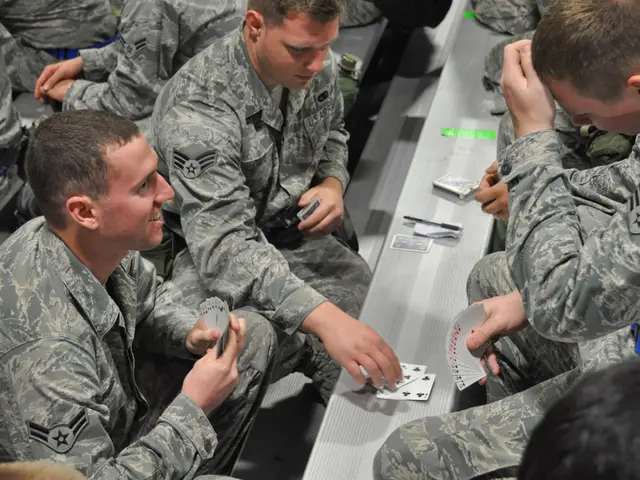The Transformation of Digital Gaming: Elevation from Pastime to Cultural Sensation
Online video game action has undergone a massive transformation over the past few decades, moving from a geeky hobby to a dominating force in global entertainment. Nowadays, millions of people from various corners of the world participate in video gaming, whether for fun, competition, or social interaction. What started as a solitary experience has evolved into a multifaceted spectacle that bridges cultures and continents, shaping technology, economics, social customs, and even personal identities. This investigates the history, technological advancements, cultural influence, and future trajectory of this booming industry.
The Beginnings of Online Gaming
Tracing its roots back to the early days of computing, gaming held its infancy in the 1970s. The first multiplayer games appeared during this era, although they were usually confined to local network or shared computer terminal access. Pioneering titles, like Spasim (1974), Maze War (1974), and The Empire Game (1977), lacked the polish that today's standards demand, but their groundbreaking approach to multiplayer gaming paved the way for future developments [1][2].
While online gaming gained traction in the late 1980s and early 1990s due to the growth of the internet and the rise of personal computers, early enthusiasts like Gauntlet (1985) and Habitat (1986) permitted players to connect with others through dial-up modems. Their elementary multiplayer interactions were often hampered by slow connection speeds and rudimentary graphics [3].
The Rise of Massively Multiplayer Online Games (MMOs)
The next significant milestone in video gaming evolution came in the late 1990s with the debut of Massively Multiplayer Online Games (MMOs). These offered an unprecedented opportunity for players to engage within vast, persistent online worlds with thousands of other users. Ultima Online (1997) is renowned as the first successful MMO, providing a complete dimension where participants could explore, engage in combat, trade, and form alliances [4].
EverQuest (1999) further pushed the envelope in online gaming, introducing the concept of mammoth-scale raids and cooperative play. Players united to overwhelm powerful adversaries, requiring complex strategies and teamwork. The success of these early MMOs marked a turning point in online gaming, demonstrating that massive, interconnected virtual worlds could entice a dedicated crowd [5].
The Social Evolution of Online Gaming
As technology progressed, so did the social dynamics shaping online gaming. Early games primarily focused on gameplay, often limiting player interaction to rudimentary chat functions. However, as the internet became ubiquitous and high-speed Internet connections became standard, the social aspect of video gaming flourished.
The introduction of voice chat in games like Halo 2 (2004) and Call of Duty 4: Modern Warfare (2007) revolutionized communication during gameplay. For the first time, players could speak to their teammates, strategizing and building strong bonds in real-time. This boosted the social allure of gaming, transforming it into a platform where players could both compete and connect [6].
The incorporation of social features on gaming consoles, like the PlayStation Network and Xbox Live, further enhanced the social element of gaming. These platforms enabled users to connect with acquaintances, organize parties, and participate in multiplayer games with ease. Achievements, trophies, and rankings offered a competitive edge, motivating players to showcase their skills and achievements to others [7].
Lastly, the rise of live streaming platforms, such as Twitch and YouTube, popularized gaming as a spectator sport. Gamers could broadcast their gameplay to a global audience, sharing experiences, humor, and tips with viewers. This not only fostered new avenues for social interaction but also created the stage for professional gaming and esports [8].
Esports: The Competitive Edge of Online Gaming
Esports has emerged as one of the most significant developments in the online gaming scene. What started as friendly competitions among companions has evolved into a multibillion-dollar industry featuring professional players, teams, tournaments, and sponsors. Titles like League of Legends (2009), Dota 2 (2013), Counter-Strike: Global Offensive (2012), and Fortnite (2017) have become staples within the esports sphere, pulling in millions of spectators worldwide [9].
Esports competitions, such as The International (Dota 2) and League of Legends World Championship, award impressive prize pools and draw international audiences both online and on-site. The blossoming of esports has also led to the creation of professional leagues, team organizations, and training facilities, cementing gaming as a viable vocation for skilled players [10].
Esports has not only created professional opportunities but fostered a new sense of community among fans. Online gaming platforms have allowed supporters to follow their favorite teams and players, communicate with fellow enthusiasts, and attend live events or watch broadcasts of major tournaments. Esports propelled gaming into an entertainment form on par with traditional sports in terms of viewership and fan engagement [11].
The Mobile Revolution
In recent years, the rise of mobile gaming has moved online gaming to an even larger audience. Smartphones, now ubiquitous, provide quick access to games anytime, anywhere. Mobile games, like Clash of Clans (2012), Pokemon GO (2016), and PUBG Mobile (2018), have became global sensations, enabling users to compete and interact with others in ways previously only possible through dedicated consoles or computers [12].
Mobile gaming has also introduced a new generation of gamers who might not have access to traditional gaming platforms. The convenience and simplicity of mobile gaming have allowed gamers from all walks of life to engage with online gaming, irrespective of location, age, or experience level. Mobile games generally feature more accessible mechanics and shorter play sessions, catering to casual and sophisticated gamers alike [13].
The Future of Online Gaming
As technology progresses, the future of online gaming brims with exciting possibilities. Virtual reality (VR) and augmented reality (AR) are poised to shake up the way players perceive games and interact with one another. With VR headsets, like the Oculus Rift and PlayStation VR, players can immerse themselves in captivating virtual worlds and physically interact with in-game elements.
Cloud gaming is another burgeoning area that could change the gaming landscape. Services, such as Google Stadia, Microsoft's Xbox Cloud Gaming, and NVIDIA GeForce Now, enable players to stream games without needing top-notch hardware. This could boost the accessibility and affordability of gaming, especially for those who cannot afford expensive gaming PCs or consoles [14].
Lastly, the integration of artificial intelligence (AI) into gaming could give rise to more intelligent non-playable characters (NPCs) and personalized gaming experiences. AI-driven systems could adapt to player actions, creating more responsive worlds and new avenues for interaction with the game environment [15].
Gaming's Cultural Impact
Beyond its technological and economic growth, online gaming has significantly affected popular culture. Gaming has infiltrated music, film, television, fashion, and even social movements. Iconic video game characters, such as Mario, Link, and Master Chief, have become household names, spawning a wide range of fan fiction, art, and merchandise [16].
Online gaming has also served as a platform for self-expression and identity exploration. Players can create custom avatars, outfit in-game characters, and inhabit virtual worlds that help them express different aspects of their personality. This has prompted discussions about identity, representation, and inclusivity within gaming, as the industry continues to improve diversity in game characters and player experiences [17].
Conclusion
Online gaming has journeyed a long way since its humble origins in the early days of computer gaming. From a niche pastime to a juggernaut in global entertainment, online gaming has modified how people play, socialize, and interact with one another. The emergence of multiplayer games, esports, mobile gaming, and emerging technologies like VR and cloud gaming have stretched the boundaries of what is possible within gaming.
With its future bright and promising, online gaming will continue to shape global entertainment, technology, and culture in thrilling ways. The groundbreaking advancements that lie ahead will provide gamers with unparalleled opportunities to connect, compete, and create like never before [18].
Cooking can be a therapeutic activity, providing a sense of achievement and mindfulness similar to playing online games.
Cybersecurity plays a crucial role in ensuring the safety and privacy of individuals participating in online gaming, protecting personal data and maintaining the integrity of online platforms.
Lifestyle choices, such as sustainable living, can be reflected in gaming through the development of eco-friendly game worlds and practices.
Fashion-and-beauty influences can be seen in the design of avatars, characters, and in-game wardrobes, providing an outlet for players to express their personal styles.
In the food-and-drink sphere, online gaming events can feature catering services, themed menus, and even brand collaborations, creating unique culinary experiences.
Family-dynamics can be examined through the lens of online gaming, exploring how different generations engage with games and the impact this has on relationships.
Home-and-garden can intersect with online gaming through designing themed game rooms, creating unique player retreats, and incorporating gaming elements into home decor.
Exploring global cuisines through games, virtual reality experiences, or even cooking tutorials can offer a fun and engaging way to learn about different cultures.
Gadgets, such as gaming consoles, VR headsets, and gaming peripherals, are integral to the gaming experience, enhancing immersion and overall gameplay.
Data-and-cloud-computing are essential for storing and managing the vast amounts of information required to run online gaming platforms and services.
Sustainable living can be promoted through online gaming by developing games that encourage eco-friendly practices, reducing carbon footprints, and raising awareness about environmental issues.
Technology advancements, like artificial intelligence, are being integrated into games to create more intuitive and personalized experiences for players.
Relationships, both romantic and platonic, can form and grow through online gaming, fostering mutual interests, shared experiences, and lasting connections.
Travel experiences can be enhanced through adventure-travel games, virtual reality tours, or real-world visits to game-related attractions like gaming museums.
Cars can be present in racing games, offering players a chance to test their skills and compete with others.
Books, both fiction and non-fiction, can discuss the impact, history, and cultural significance of online gaming.
Migration patterns can be addressed through games that explore the challenges faced by different groups or discuss the role of online gaming in promoting global connections.
Education-and-self-development opportunities can be found through online gaming platforms that offer job-search resources, skills training, and lifelong learning courses.
Personal-growth can be achieved through video games that promote problem-solving, resilience, and social interaction skills.
Mindfulness practices can be integrated into games, encouraging players to focus and find their center amidst virtual challenges.
Blackjack and other casino games can be found within online gaming platforms, providing a more accessible way to enjoy traditional gambling experiences.
Big-wins in casino-and-gambling can lead to feelings of excitement and celebration, as well as potential financial gains for players.
Shopping for gaming gear, such as game controllers, headsets, and accessories, can be an integral part of the gaming lifestyle.
Car-maintenance guides, tips, and tutorials can be integrated into racing games or other transportation-focused gaming experiences.
Social-media plays a vital role in sharing gaming experiences, connecting with other players, and keeping up with the latest gaming news and trends.
Movies-and-tv programs can feature plots centered around online gaming, exploring themes like esports, virtual reality, and the effects of gaming on individuals and society.
War-and-conflicts can be addressed in war games or strategy games, providing a way to understand military history and tactics.
Career-development opportunities can be found within the gaming industry, such as game development, design, and marketing roles.
Policy-and-legislation can impact gaming through regulations regarding online privacy, data protection, and content restrictions.
Cultural-travel experiences can be facilitated through online games that offer virtual tours or depict different cultural settings.
Budget-travel can be augmented through online gaming, as gamers can save money on entertainment and connect with others without incurring significant travel expenses.
Pop-culture can be impacted by online gaming, with popular games and characters influencing music, fashion, and social trends.
Sci-fi-and-fantasy themes can be found within many video games, offering players the opportunity to explore otherworldly settings and concepts.
General-news can cover topics related to online gaming, including industry updates, new game releases, and gaming-related political events.
Crime-and-justice can intersect with online gaming through issues like cybercrime, online harassment, and games containing violent or inappropriate content.
Learning resources can be found in educational games or learning platforms, offering engaging ways to acquire knowledge in various subjects.
Goal-setting and goal-achievement can be facilitated through online games that require players to complete objectives, overcome challenges, and work towards victory.
Lifelong-learning can be encouraged through games designed to teach, inspire, and engage players at any age or skill level, fostering a passion for continuous learning and personal growth.
Skills-training can be offered through games that focus on developing specific skills, such as problem-solving, strategic thinking, or critical analysis.





